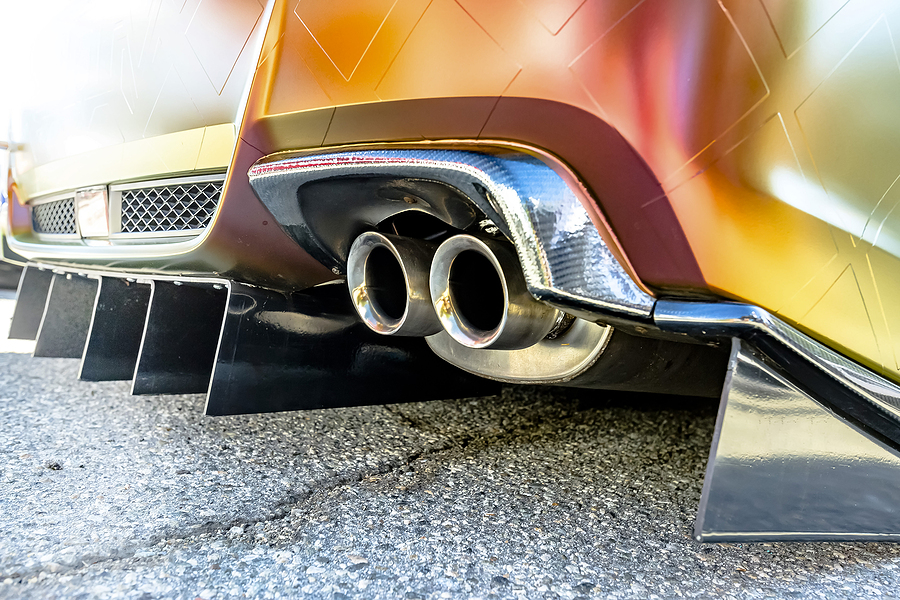Top Reasons How Exhaust System Leaks Can be Unsafe to You and Harmful to Your Vehicle

Leaks in the exhaust system are incredibly bothersome, as well as humiliating. Most individuals do not wish to make their presence known on every street they drive down, mainly if they are simply on their way to work. This widespread issue can endanger your health and lead to further problems that could be expensive to fix in the future for your vehicle. Of course, repairing a leak in your exhaust system is necessary for more reasons than just the sound it makes.
It may be time to rethink your strategy if you have a pattern of disregarding problems with the exhaust system. Below are four scenarios where a leaking exhaust might result in far more significant issues further down the road.
Dangerous Fumes
If you can detect the odor of exhaust leaks within your vehicle, then potentially hazardous exhaust gasses are entering your cabin. The conventional passenger automobile does not have a hermetically sealed interior and instead depends on the exhaust system to securely evacuate gasses from the back of the vehicle. If the exhaust is seen as exiting the car from below, it can make its way into the passenger compartment.
Carbon monoxide is one of the most lethal byproducts of combustion, yet unlike other fatal gasses, it does not make a sound while it does its job. You may be unaware of the situation, even if a dangerous amount of toxic gas is flowing into your vehicle due to a leak. Leaks in the exhaust system can be expensive for several reasons but leaks within the cabin pose the most significant risk to the people traveling in your car.
Accidents Involving Catalytic Converters
More than merely a failure to remove combustion leftovers from your engine, an exhaust leak may cause various other problems. Additionally, it can suck extra oxygen into the exhaust system. When this occurs, the oxygen sensors in your vehicle will detect a lean state and correct it; they will add additional fuel to the combustion mixture. Because there is not enough air to allow all of this fuel to be burned, unburned power will be released into your exhaust stream.
It might not seem like a big deal to have a bit of excess gasoline, but unburned fuel poses a substantial risk to the catalytic converters in your vehicle. Because of the extraordinarily high temperatures at which catalytic converters function, any unburned gasoline that enters them will spontaneously combust. This causes deterioration to the internal substrate over time, leading to blockage within the unit and disruption in its ability to function correctly.
Defected Oxygen Sensors
An excessive amount of gasoline in your exhaust stream can cause the sensors to become fouled and prevent them from generating an accurate measurement. This can happen if the fuel coats the tips of the sensors. The same thing may happen to your O2 sensors as it can to your catalytic converter, even though replacing them won’t cost nearly as much money. If you overlook a possible exhaust leak for longer, the likelihood that your O2 sensors will also need to be replaced increases.
Inadequately functioning oxygen sensors will not only increase the expense of the repair, but they will also cause a decrease in your car’s gas mileage, draw power away from the engine, and perhaps cause the vehicle to idle improperly. It is also possible that you may cause several error codes to appear on the computer, making it more challenging to determine the root cause of the issue.
Internal Engine Damage
When your vehicle’s exhaust system removes fumes from the engine, it performs more functions than simply moving hazardous compounds. The heat created in your engine’s combustion chambers is also carried away by the exhaust stream. In the worst possible scenario, damage to the engine’s internal components may result from an exhaust leak that occurred in the wrong location.
If an exhaust leak occurs near enough to the exhaust manifold, the system will no longer be able to remove sufficient amounts of heat from the engine. This extra heat poses a risk of causing harm to the valves that are responsible for allowing exhaust gasses to leave the machine. Repairing such severe internal engine damage typically costs well over a thousand dollars, a significant increase compared to fixing the leak in the first place.
Do not put off fixing an exhaust leak in your vehicle until the worst-case scenario occurs. Get in touch with a muffler repair business in your area or an OEM dealer as soon as possible to get the issue assessed and fixed as quickly as possible.
